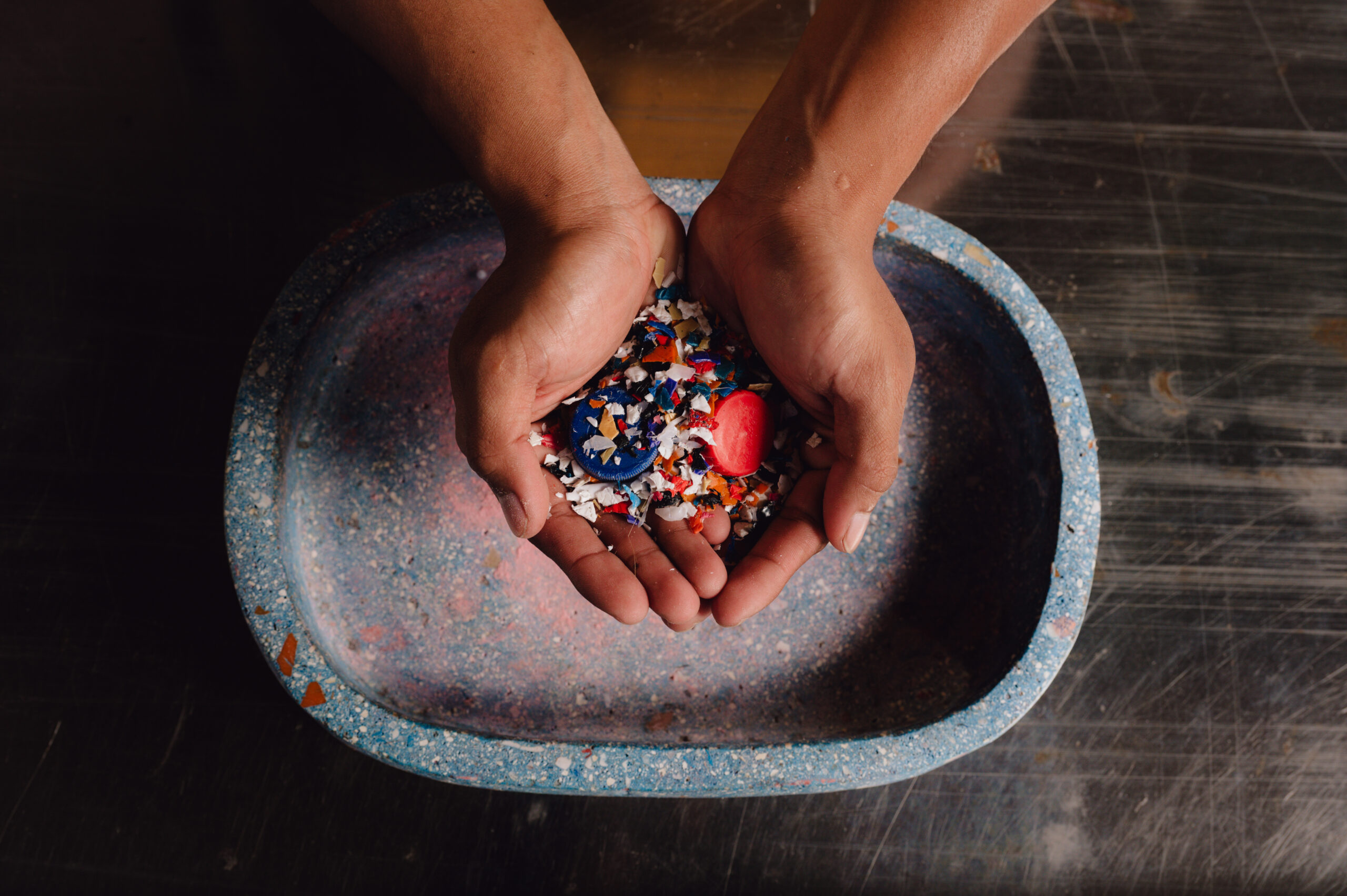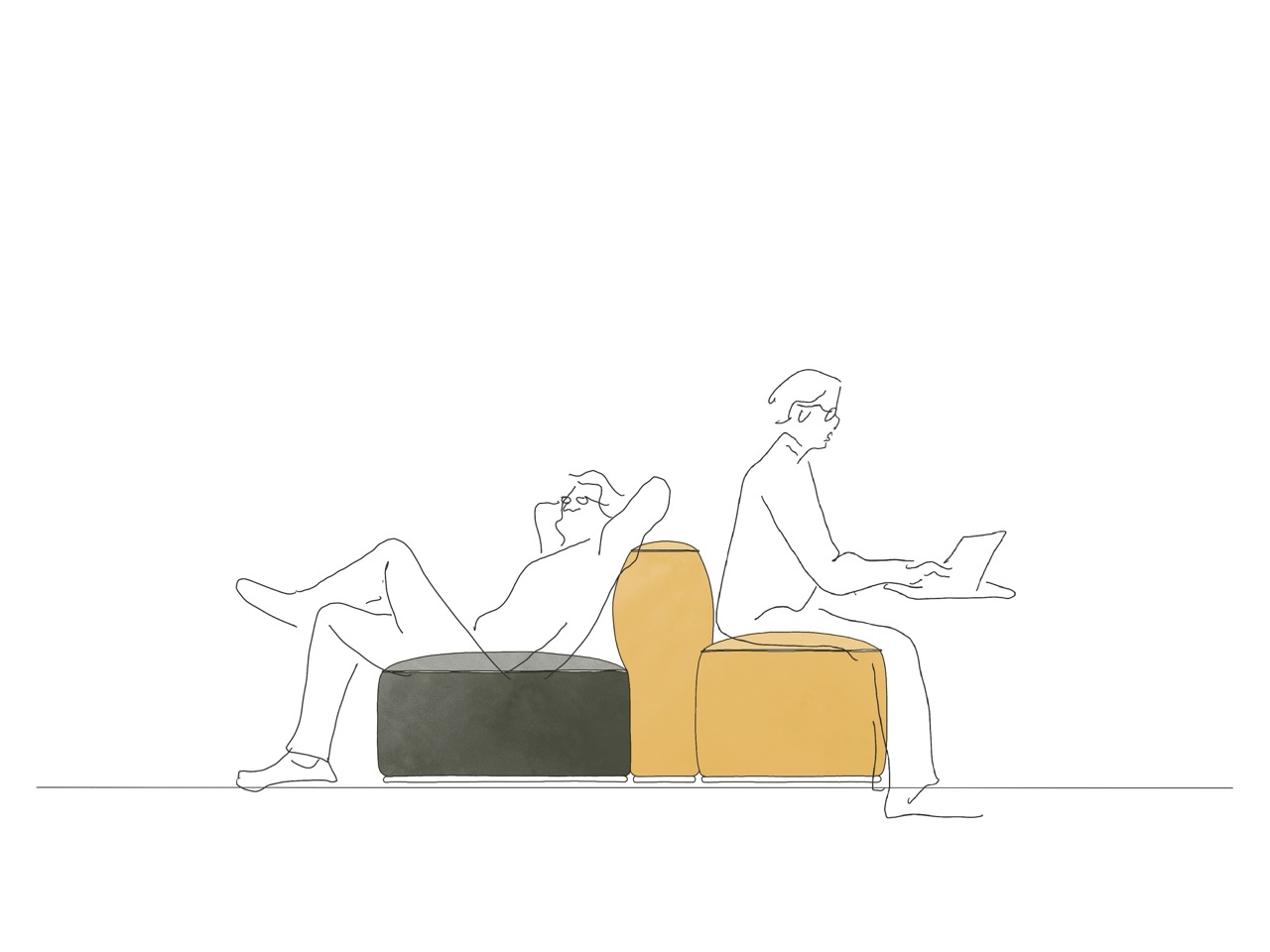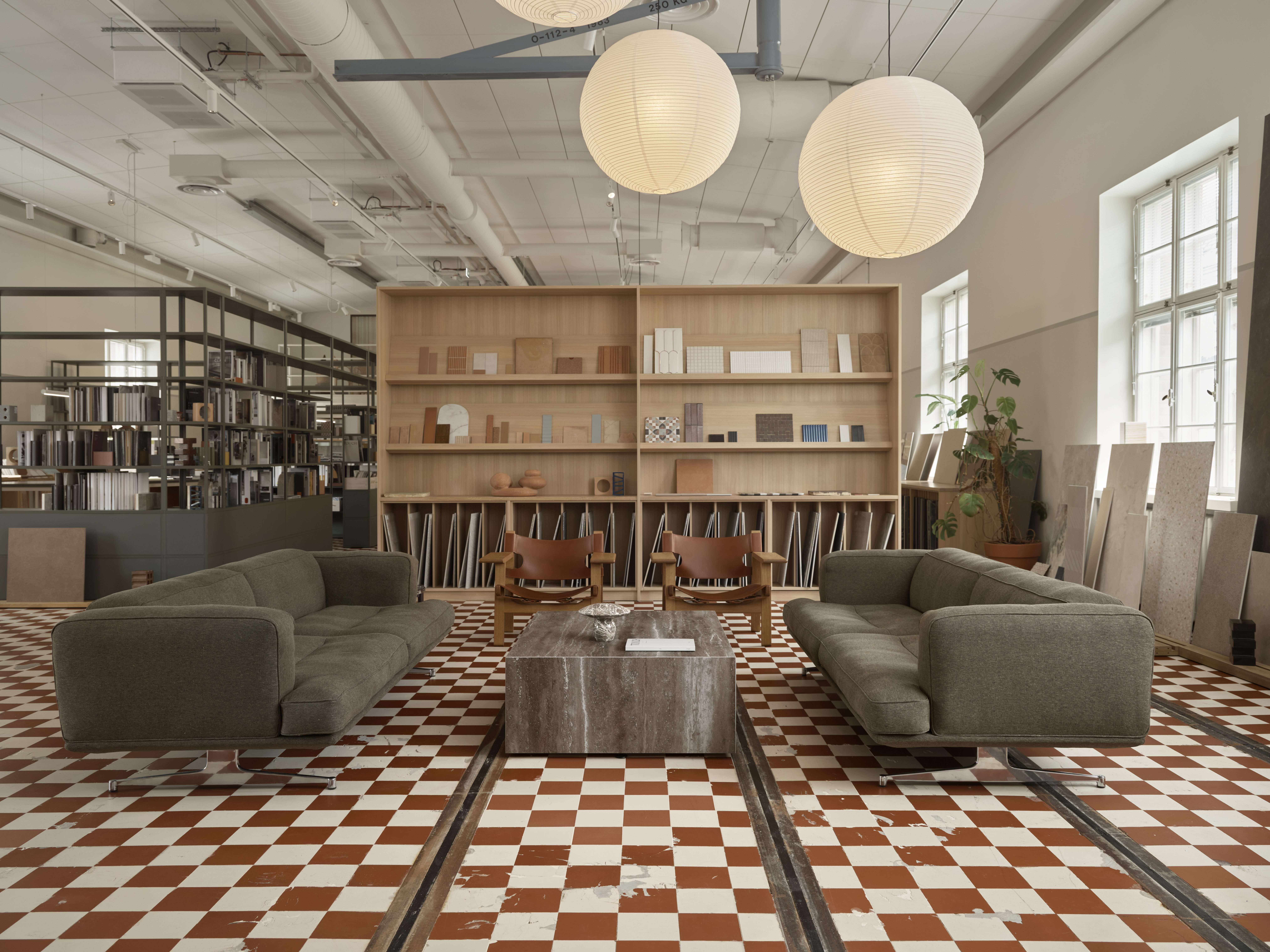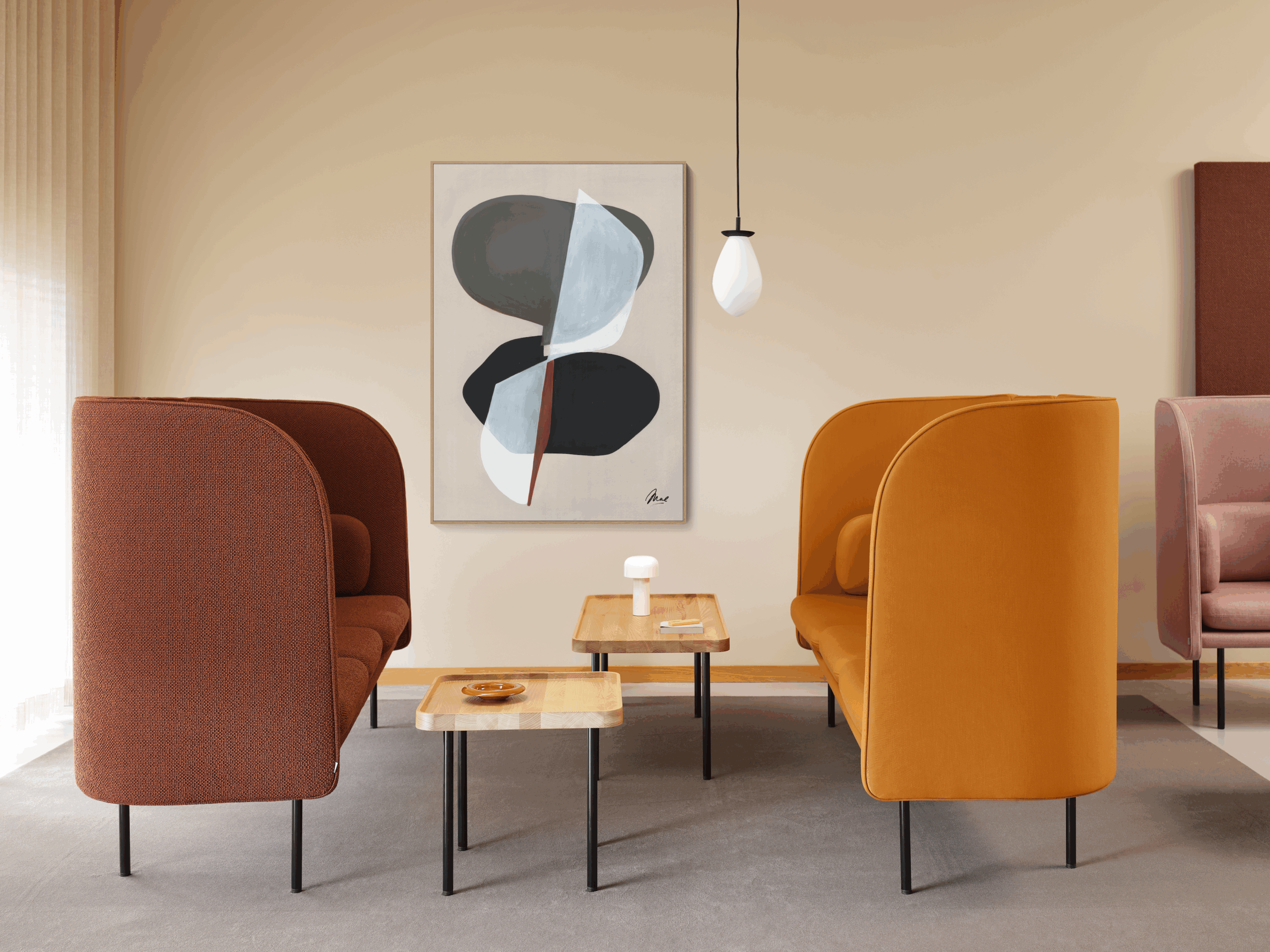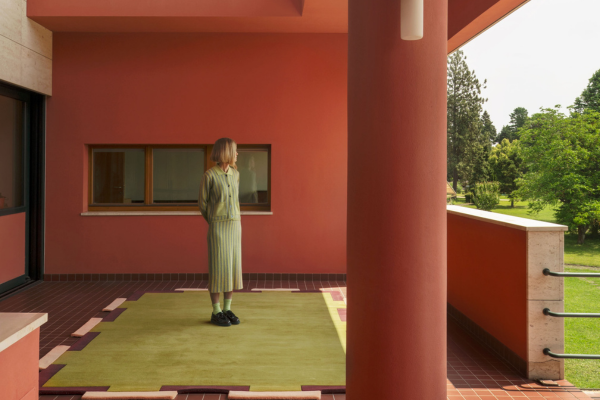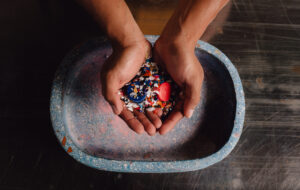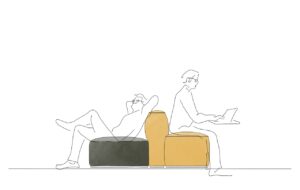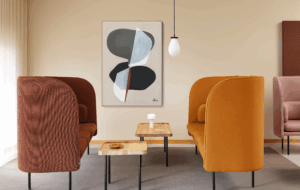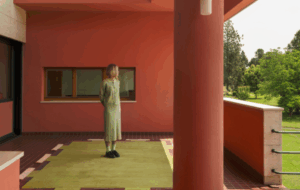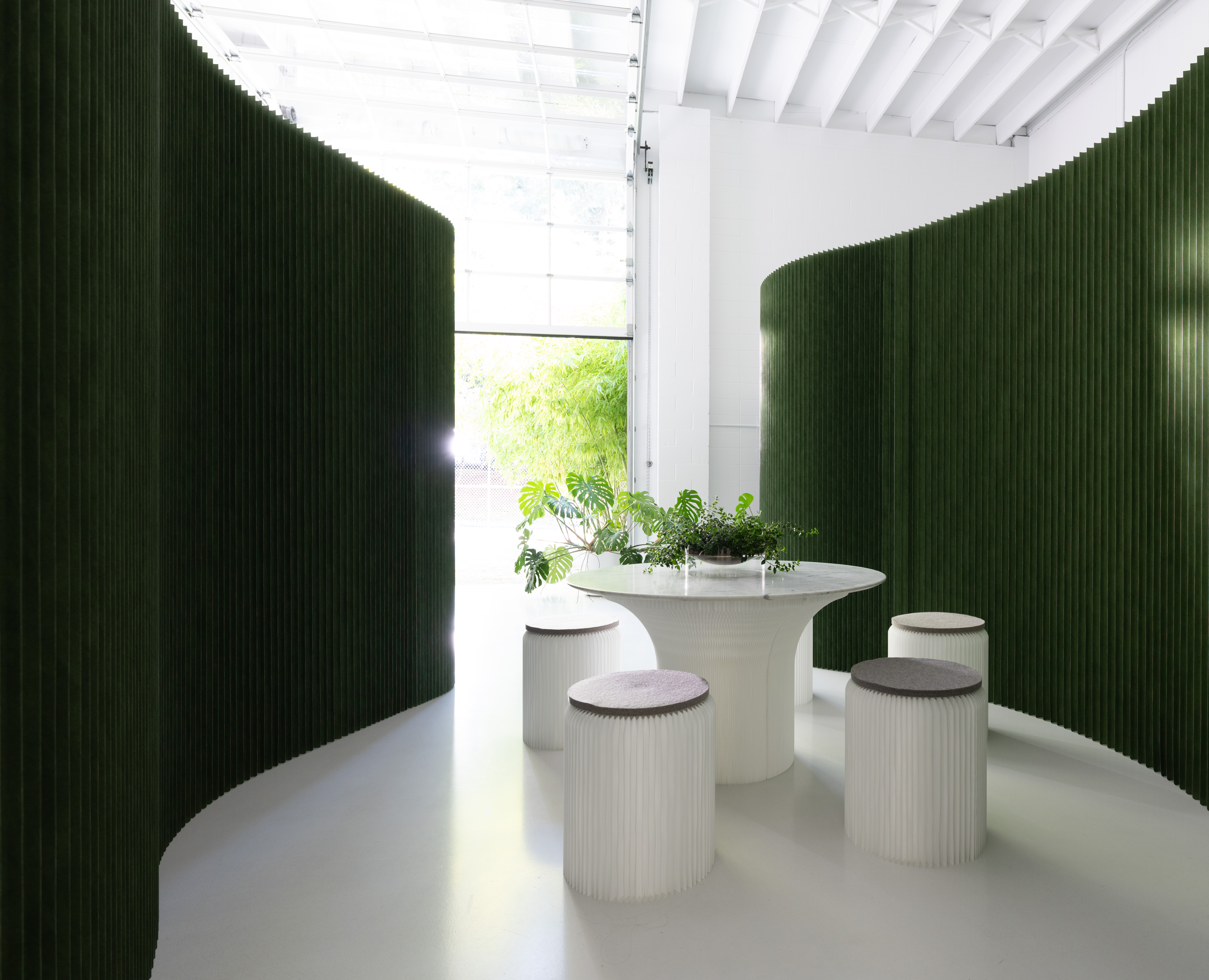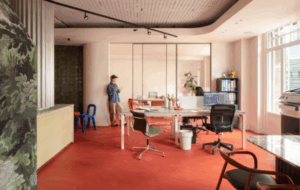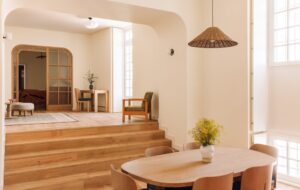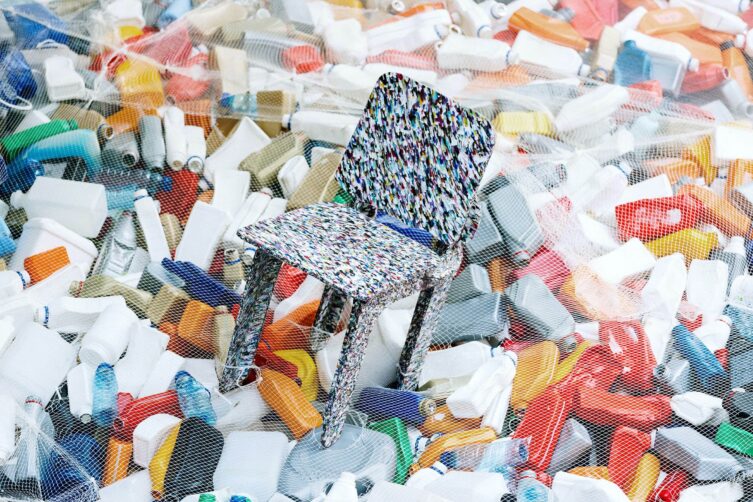
The UK-based company’s recycled plastic sheets for use in commercial interiors and product design are proving that one company’s trash can be another’s treasure. OnOffice writer Sean McGeady sits down with the founders to find out how the duo is reimagining materials
If you’ve spent any time in modish residential and hospitality settings over the past decade, there’s a chance that you’ve come across Smile Plastics’ products. From Selfridges and Sneakersnstuff to cafés and cocktail bars in Birmingham, Berlin and beyond, the manufacturer supplies eco-conscious brands and designers with the material of tomorrow: yesterday’s waste.
Plastic accounts for five million tonnes of UK waste every year. Only 25 per cent of that is recycled, with much of it exported overseas to be burned or begin its centuries-long decomposition in landfill. Smile Plastics is proudly putting it back out there, not as recycled traffic cones but as eye-catching, eco-friendly alternatives to surface materials such as plywood, stone and terrazzo.

Smile Plastics was co-founded by Rosalie McMillan and partner Adam Fairweather in 2015 – but not for the first time. The company was set up in the mid-1990s by plastics scholar Colin Williamson and Jane Atfield, a designer best known for her groundbreaking RCP2 chair. By 2010, though, Williamson was ready for retirement and began winding the brand down.
“It was always very small, with great intentions,” says McMillan. “Maybe it was before its time. There wasn’t the need for sustainable materials like there is today. It just wasn’t on the agenda.” By the time McMillan and Fairweather, an industrial designer, approached Williamson about reviving Smile Plastics in 2014, the conversation was changing – fast.
With Williamson’s blessing, McMillan and Fairweather sought to expand Smile’s operational capacities. But to do so, the duo would first have to redesign its manufacturing processes and rebuild its supply chains. Following years of growth and multiple rounds of investment, today Smile’s 38,000 sq ft factory, on the Gower Peninsula in South Wales, has the capability to run 24/7.
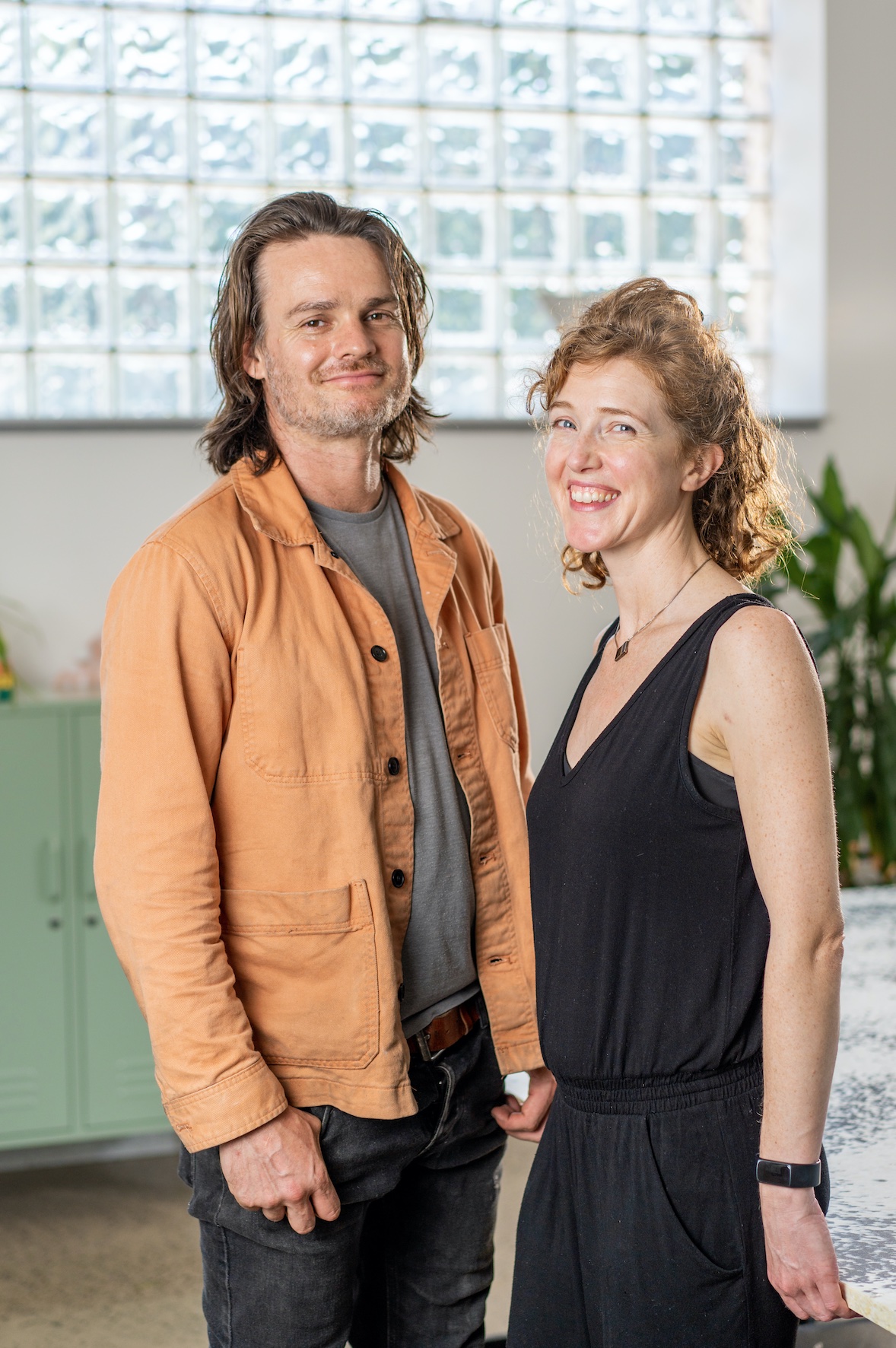
Here, Smile turns pre- and post-consumer materials such as white goods and yoghurt pots into supersized 3m x 1.2m panels. Its dual production lines and proprietary thermoplastics process mean that the 45-strong company can produce up to 70,000 square metres of surface panels a year. Smile counts the likes of Lush, Ganni and the Wellcome Collection among its partners, all of which prize its commitment to aesthetics and circularity.
Smile Plastics, however, is not a recycling company. Instead, it sources its raw materials from local brokers that collect, sort, clean, shred and ship waste plastics in monumental quantities. These waste plastics vary in quality, with Smile selecting only the best. “We’re quite picky with what we source,” says McMillan. “The low-value material is heavily contaminated with dirt and other materials. In time, we’ll probably be able to recycle those but, for the moment, we can’t create the quality we need with them.”
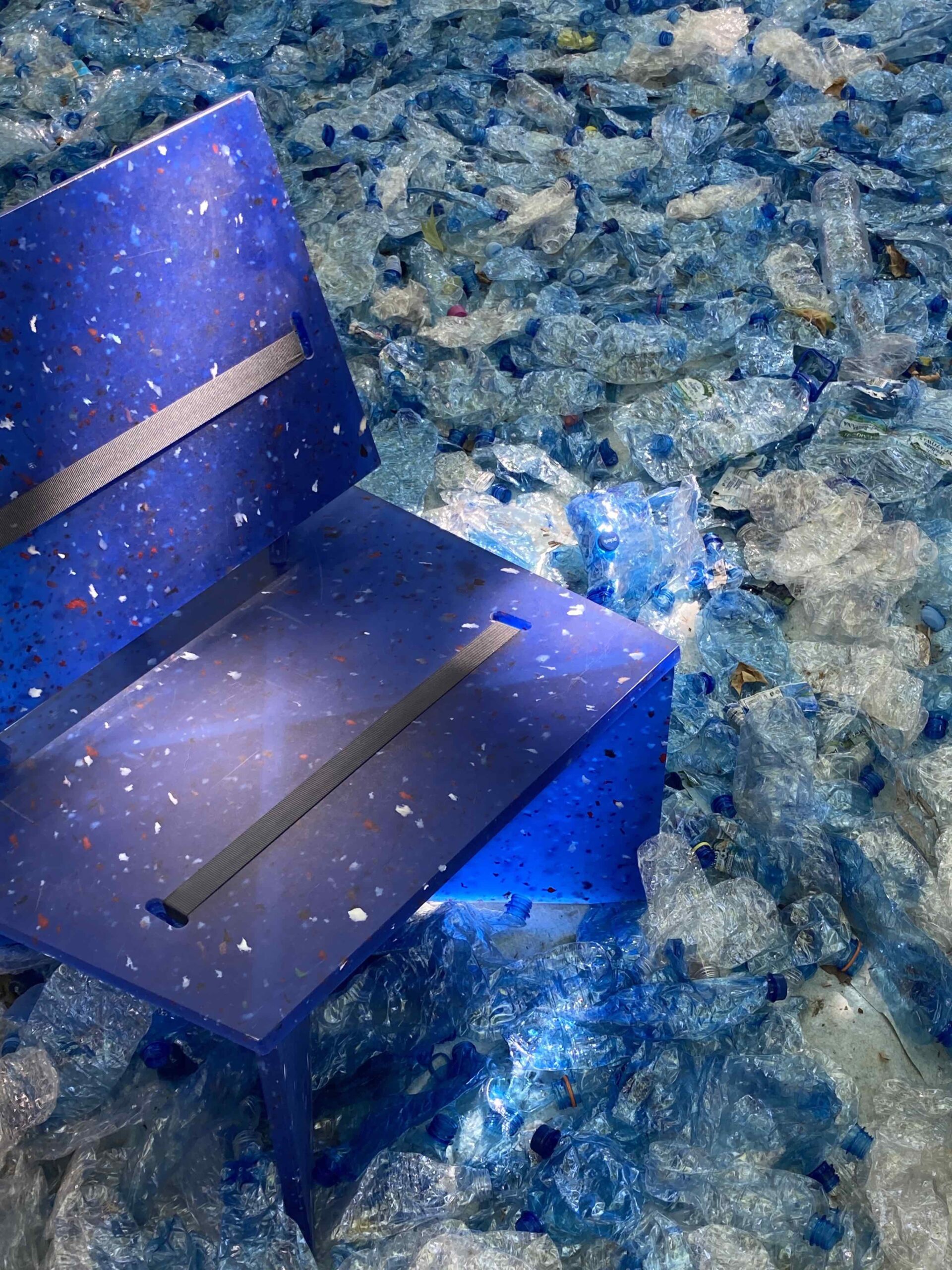
It’s the materials that dictate the design. From its Heron collection to one of its most popular products, a maximalist high-density material beloved by the retail sector but no longer on sale, Smile’s products are subject to change. “We had a product called Kaleido that was super-bold,” says McMillan. “It was always multicoloured, but the particulars would change. We’re not selling Kaleido at the moment because it’s difficult to source enough of that raw material. It’s something we just have to accept. Our materials evolve over time as we look for new opportunities.”
Even after Smile’s raw materials arrive at the factory, there’s still much to do before its workers can bring down the hydraulic press. Part of the appeal of Smile’s panels is their seemingly random patterns. But their fossilised-confetti aesthetic isn’t nearly as scattershot as it first appears. Smile hand- arranges its shredded raw materials on a large bed, considering how best to produce patterns, match colours and adhere to client demands, before beginning the sintering process, which uses the application of heat and pressure to compact materials into a solid mass. Ultimately, everything’s at the mercy of the method.
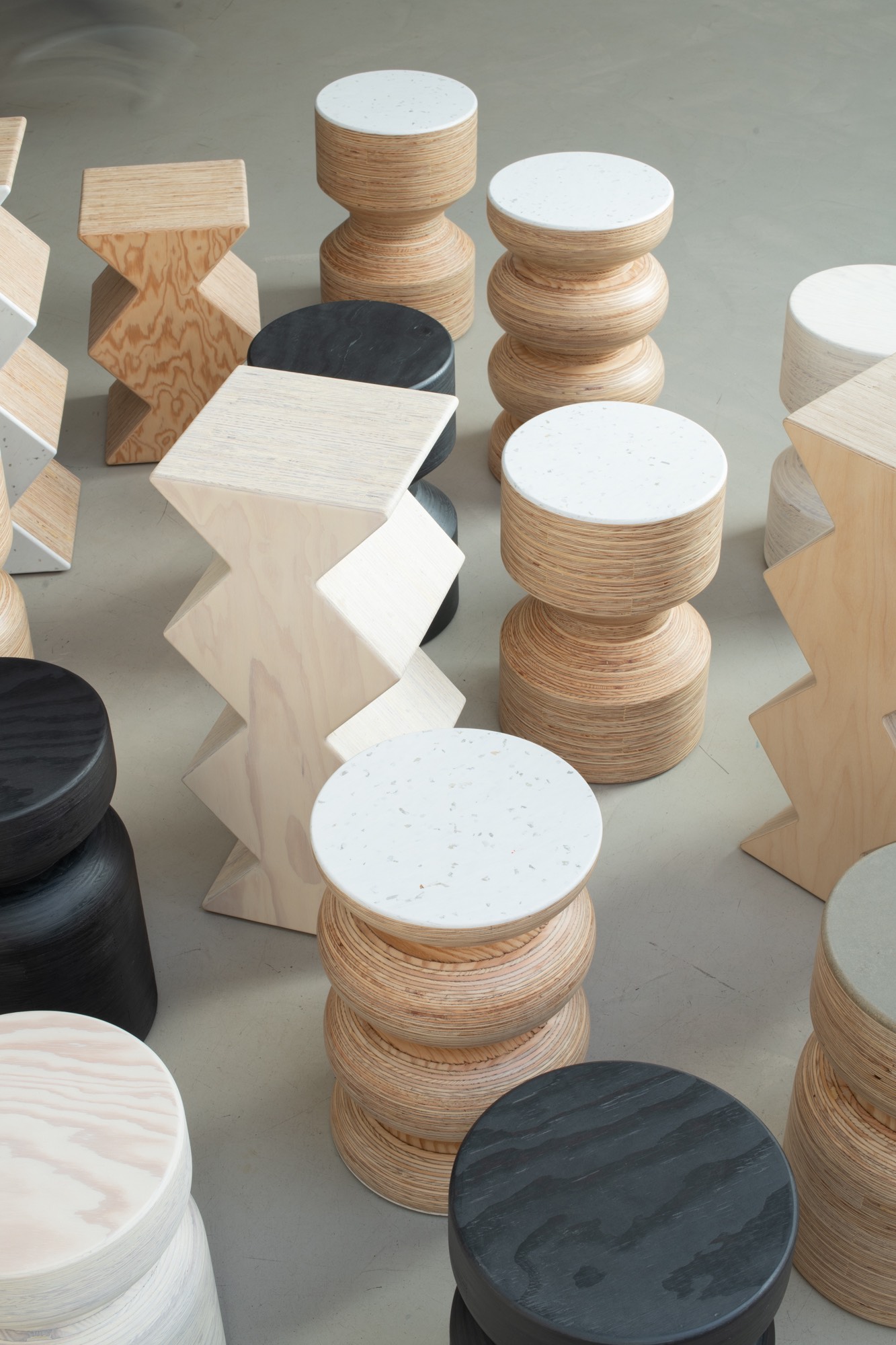
“The flecks are spread, like an explosion, through the heat and pressure cycle,” says McMillan. “We can influence it to a certain extent, but the production process will always win. There’s always an unexpected element. It’s one of the reasons the raw material makes each sheet unique. Every batch we make up will be a little different from the previous.”
Where other companies create recycled products by compounding and injection- moulding their raw materials into their desired shape – a chair, a tray, a utensil handle – Smile stays as true as possible to its original materials. Look closely at its black-and-white Charcoal panels, for example, and you’ll see traces of the plastic medical waste used in their production. Likewise, the harlequin freckles of plastic packaging featured in its deep-blue Ocean panels really make the material pop. Smile’s latest collection, Earth, is more subdued, and is made up of calming natural tones with lightly speckled finishes, such as Slate, Mawn and Quarry.
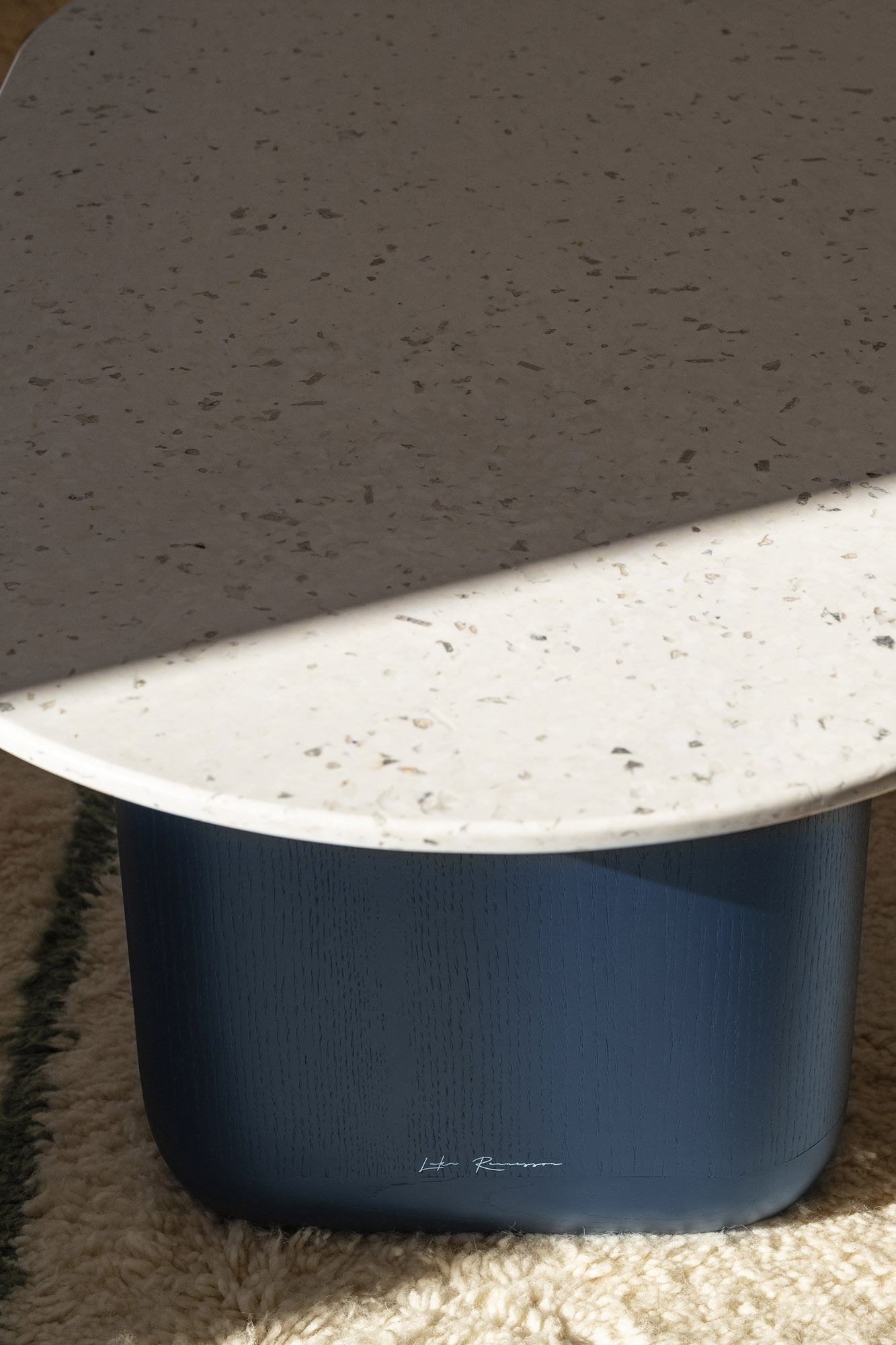
Thanks to its in-house equipment and CNC machines, Smile can cut its materials to order, as well as offer basic construction and fabrication. Not only does Smile reuse the offcuts generated in its own production, its customers can also send their offcuts or end-of-life panels back to the company to be reworked into new panels.
These efforts are important not only due to the climate challenges we all face but also due to the lack of knowledge that surrounds them. “We are increasingly shunning plastics,” says McMillan, “which I completely understand – there’s a huge misuse of plastics within the environment and we’re seeing a trend towards people wanting to use more natural materials. But it’s more complex than that.” McMillan cites the amount of synthetic materials used in plywood, for example. In terms of carbon impact, she says, Smile’s plastics are a much better option.
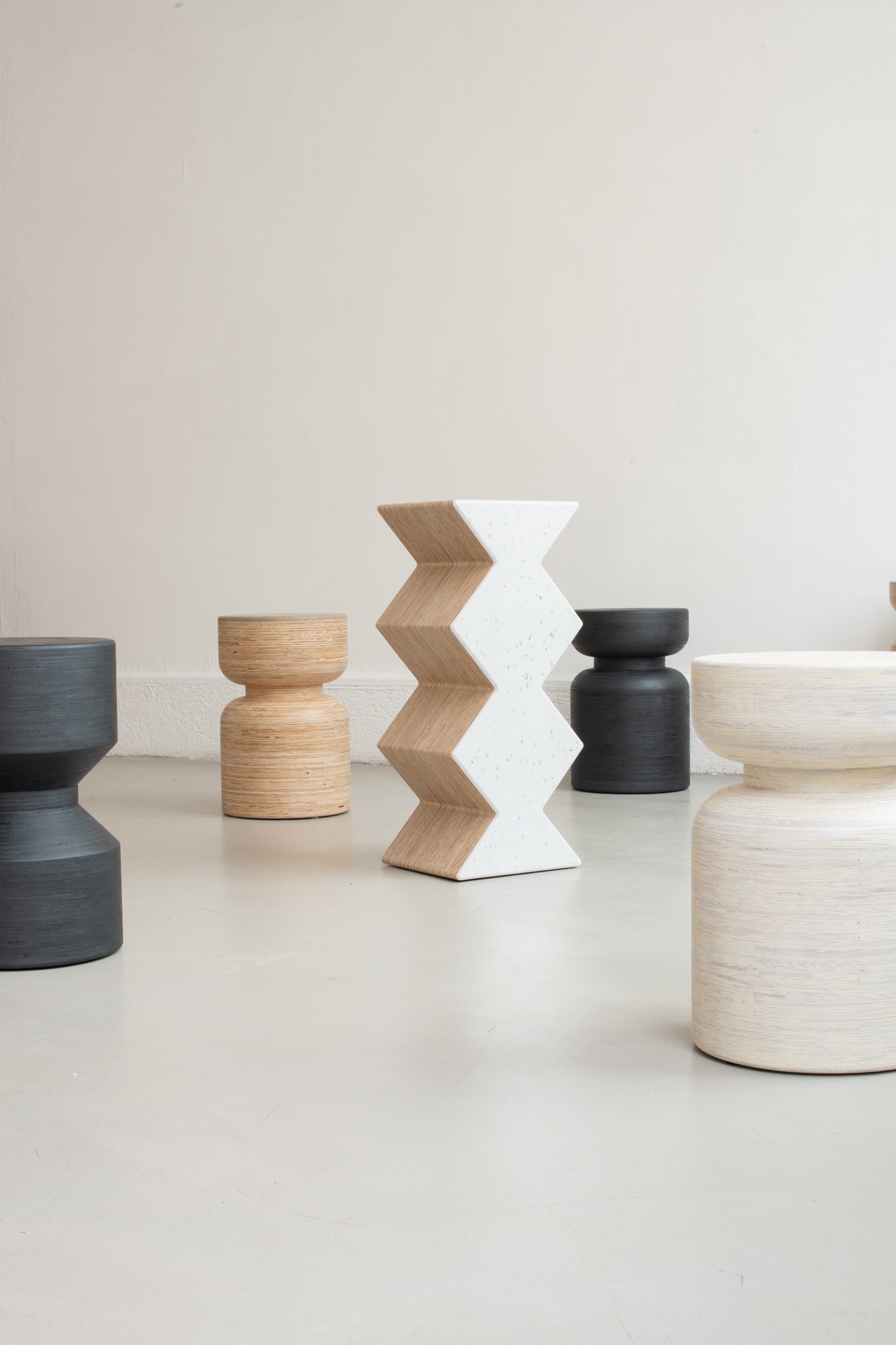
Smile exports more than 60 per cent of its products and its long-term plans include a second factory in a European location, closer to its growing market. “There are 16 billion square metres of surface panels required every year. The market for surface panel products is absolutely colossal.”
McMillan and her colleagues have a lot of work to do, then. But at least they’re smiling about it. “We’re totally ready to satisfy our customers’ needs. In the past, we haven’t necessarily been able to do that – but we’ve got two production lines, we’ve built our team, we are ready.”
Images by weCREATE, Jean-Philippe Rabier and Ben Rch
Enjoyed this article? Subscribe to our weekly newsletter here


